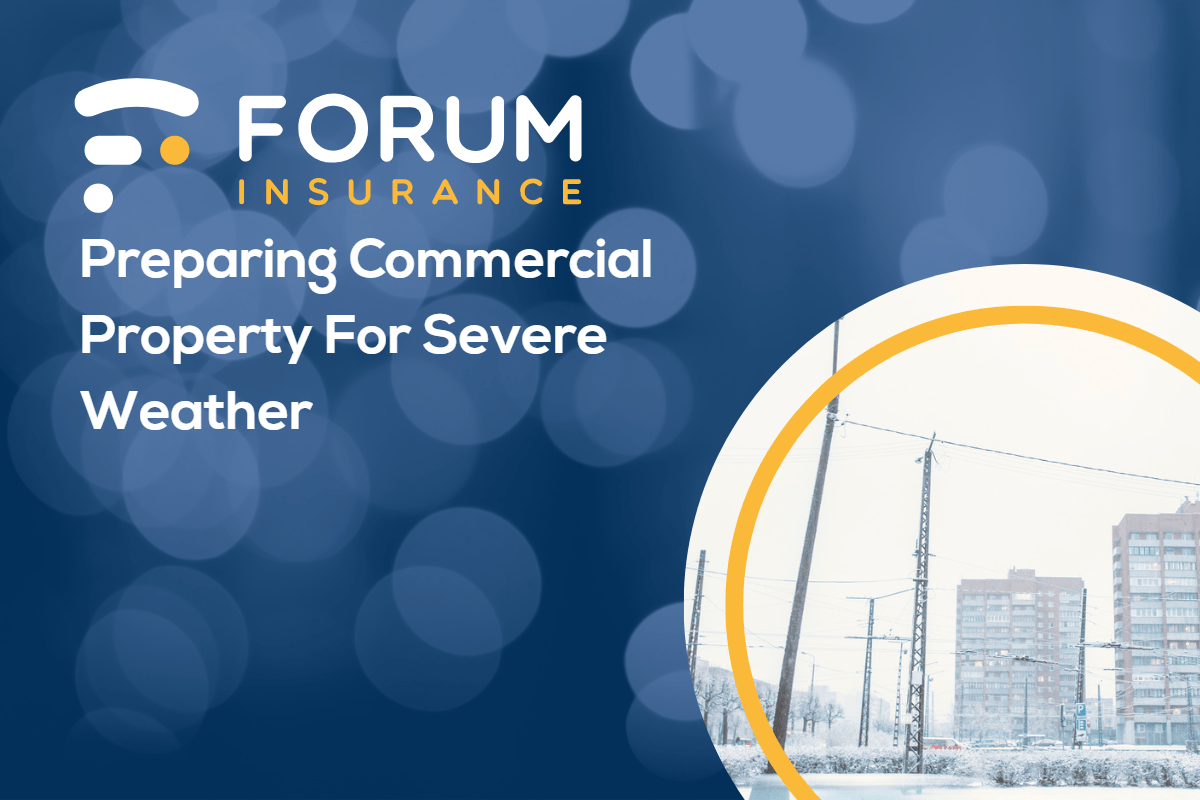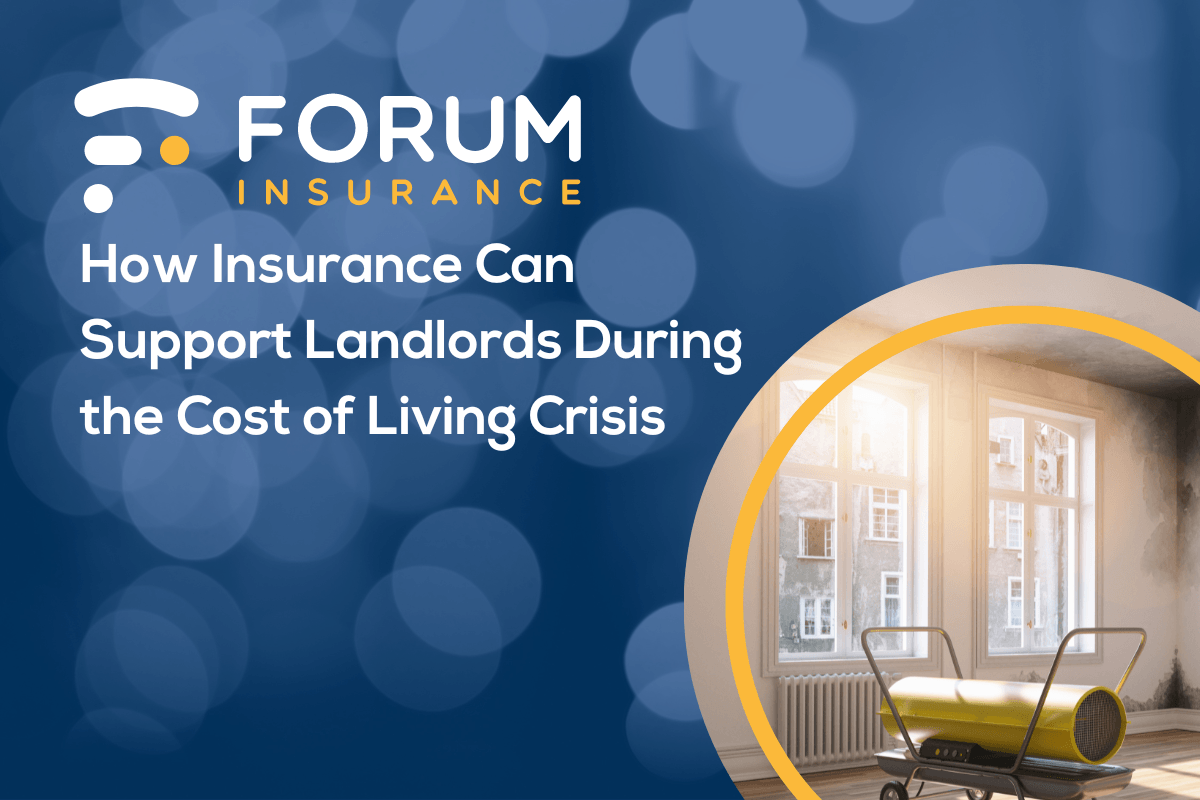How To Avoid Under-Insurance If You Own A Small Or Medium-Sized Business

Best Tips
- Consult professionals so that they can help you decide on your total sums insured. Regular valuations will ensure that all the sums insured are accurately assessed. You can get all the information from your insurer or your insurance brokerage.
- Business continuity and disaster recovery plans are excellent to help you recover after suffering a loss.
- Make sure you check that the liability limits of indemnity, standard policy limits, and business interruption indemnity periods are sufficient in case you buy a generic online package policy.
- Getting the numbers right when buying an insurance policy will help you to prevent any inadequate sums insured to become less suitable year on year.
- Due to the complexity of liability policies, make sure that you have considered all the possible risks and their resulting claims, and see whether you have any liabilities under your business contracts' covenants.
- The sums that you insure for the buildings must be according to the cost of rebuilding rather than the market value. Some specific features of your premises may affect the overall cost of reconstruction.
- Risks can sometimes be uncalculated or totally surprising. You have to prepare for the worst, so consider the changes in the risks, too, such as data protection or cyber threats.
- As far as business interruption insurance is concerned, consider declaration linked insurance as it offers an uplift of 33% if the period of indemnity and sums insured is correct and if the declarations are made when the insurers request it.
- In a business interruption insurance, keep in mind that the definition of annual gross profit is different in the insurance policy and accountancy. Just ensure that the assessment of your gross profit is identical to the one in your policy.
- There are some additional costs, such as costs of claim preparation, cost of an accountant or an expert to help out with the claim, are not covered in insurance policies. It's better that you consult your broker if you want the policy to cover all these additional costs in the coverage as well.
- When considering the indemnity period for business interruption insurance, keep in mind that you need about 24 months for a business to recover and rebuild the customer base fully. So, set the indemnity period accordingly!
- Lastly, double-checking the documentation is always a good idea. Most insurers will only draw your attention to the essential conditions of the policy, but it is essential that you go through it all to ensure that there are no errors.
Insurance is considered a vital part of any business, as it offers you protection from the worst times, for instance:
- Loss or physical damage to the property.
- Injury to someone who visits your property or damage to their personal belongings caused by you or your business.
- Harm to your employees.
So, adequate insurance is essential for your business continuity planning. However, it would be best if you still were sure whether you are buying the right amount of coverage for your business. At the end of the day, if the worst happens, it would be devastating to find out that you are underinsured. You would not be able to cover the losses by the insurance policy, and it will only add to the problems.
Why Is It Vital To Get The Adequate Amount Of Insurance For Your Business
There are plenty of things that the insurance company considers when calculating the monthly premiums, with the most important one being the risk involved. It is based on the information that the client provides, and when the time comes for a claim, if the amount is lower than the value assessed at the time of loss, the insurers might seek a proportionate remedy. This can eventually lead to a higher premium at the end of the day, or a reduction in the claim payment, or maybe some different terms might be applied.
There are many reasons for an under-insurance to result, here are a few reasons why:
- First and foremost, if you fail to assess the total coverage required in the insurance plan.
- If you fail to understand what the limit of indemnity or the sum insured represents
- If you fail to know how to arrive at a suitable liability limit of indemnity or sum insured.
- If you fail to select the correct and adequate time period for the business interruption indemnity coverage.
- If you fail to understand the difference in the meaning of gross profit in accountancy and insurance definitions when arranging business interruption insurance.
- If you fail to get up-to-date valuations.
- If you fail to realise that policy standard limits are not always adequate.
- If you fail to keep the total sums insured under review yearly.
Where To Get Help And Consultancy
An insurance brokerage, such as Forum Insurance will make sure that you get the best insurance deal to give you complete coverage. They will provide you with expert consultancy and advice on how to assess sums insured and tailor a policy perfect for fulfilling your needs. So, if you want professionals handling your insurance policy and guiding you throughout, a brokerage is the best option for you. They will make sure that you are covered appropriately and adequately to provide coverage if the worst happens. Also, it will most likely prevent the devastating effects of underinsurance.
Obligations When Applying For Insurance
According to the Insurance Act 2015, all businesses are required to fulfill some obligations when applying for insurance coverage. These requirements are meant to provide you with fair treatment from the insurer in case you have to apply for a claim. However, these requirements include you being completely honest about the nature of the risk involved too.
You can ask your insurance broker to help you with what to explain all the requirements you need to fulfill, including a fair representation of the risk. Also, you don't need to worry about any information coming from the broker himself. All the information that the broker provides to the insurer will be the one you already have about your business. So, nothing is hidden from you! There are other obligations as well, which can be inquired by your broker!
Calculating The Sums Insured Including The Buildings And Other Properties
The main reason why you get insurance is to put you back in a stable and working position in case the worst happens. Unlike what some people think, you can not profit from an insurance claim.
To calculate the total sums insured, you need to see what kind of policy is set up.
- Policies that are set up on a reinstatement basis: this claim settlement provides a replacement for a property that is similar to the old ones, but not better. It is also known as new for old.
- Policies that are set up on an indemnity basis: this claim settlement takes the value resulting from condition and age into account at the time of the damage or loss. So, it will put you back in the position you were before the loss.
- Policies that are set up on an agreed value basis: this claim settlement is based on the previously agreed value when making the policy, as the name suggests.
Rebuilding Costs
It is vital for you to keep in mind that the total sum insured for the property and buildings need to represent the total cost of rebuilding or reinstatement, rather than the market value of the property in question. You need to include the cost of the following things in the total sum.
- Labour
- Materials
- Architects
- The cost of debris removal and demolition
- Value Added Tax (as required)
- Other legal fees and surveyors
- Any inflation, planning costs, public authority, or any other increasing costs during the rebuilding period as well as the policy period
Also, the rebuild costs vary according to the type of property you own; for instance, it may be higher if it is a specialised property. The rebuild costs might be higher, and it might take considerably more time to rebuild or repair.
If you are confused about the adequate sum for your coverage, you can consult a brokerage, such as Forum Insurance, to help you out and calculate the estimates for rebuilds and repairs for your property. We will carry out professional and regular evaluations to ensure that the sums insured are adequately and precisely assessed.
What Is The Difference Between Market Value And Rebuilding Cost
Rebuilding costs are not the same as the market value of a property. For instance, a property might cost a total of two million pounds, including the land it stands on. However, the cost of rebuilding the property might only be a million pounds because you can not rebuild the land itself.
Similarly, a property might have a market value of just five hundred thousand pounds, but due to some special features, the rebuilding cost might be a million pounds!
Hence, it is essential that you understand the difference between the two and consider the rebuilding cost rather than the market value.
Contents
Normally, business insurance policies cover machinery, contents, equipment, plants at the property, and elsewhere. The replacement of these contents must be as the new value of the items, rather than the one stated on your balance sheet.
The sum insured of the stock needs to express the cost of raw materials, finished goods, and as well as work in progress goods.
It would be really helpful if you had an updated inventory of all the content available in your business to calculate how much coverage you need in the insurance policy. If you keep any goods that are sold to customers on the premises, you need to insure them too to avoid any liabilities in case of an unfortunate event. Other smaller items must be covered, too, as they can add up to a considerable sum.
If you keep any special machinery on the property, it would be best if you consult the sellers of that machinery for the repair or replacement costs and the time needed to repair as well. Also, if you have any equipment that is no longer in production or on sale, insure it for the value of equipment that is equivalent to it to save yourself from any loss.
Lastly, you can also consider Brexit and the changes in the costs if you have suppliers of equipment in the European Union because now, they can cost more!
Assessing The Business Interruption Insurance
Business interruption insurance is an excellent way to help you with business continuity planning. This insurance coverage provides you with protection in case the worst happens, and things go south for your business. You can claim for the damages and losses for the time period and receive financial support during the indemnity period so you can start repairing your business again and getting back the customer base. With this insurance coverage, you would not be left with a business with everything destroyed or lost, nor will you have to spend all your savings on building it back up, and even go bankrupt doing so!
When you are calculating the sum that needs to be insured by the business interruption insurance, you need to see how much your expected gross profit/revenue is over a certain time period. This time period is known as the indemnity period, which is the time that your business will take to get back on its feet after suffering a major loss or damages. It is vital that you choose a reasonable indemnity period and sums insured to avoid underinsurance! Also, please ensure that you do not go for the indemnity period provided by standard policies, as they are often insufficient for an average business (12 months).
According to statistics, it takes about two years for a business to get back on its feet after suffering a significant loss and to recover its trading level. So, take your time and consult professionals such as those at Forum Insurance to guide you about the ideal indemnity period for your business to avoid any stressful situations if the worst happens!
What Happens If You Are Unable To Do Business For A Longer Time Than You Had Originally Planned For
There are many things that are worth considering when applying for insurance. For instance, you need to see whether the stock you have is seasonal, whether you need planning permission for rebuilding, whether there can be any damage to customer's or suppliers' premises, among other things.
If your business suffers from any physical damage that you are unable to pay by yourself, and the claim payment is delayed or rejected due to underinsurance, what do you think would happen to your business? What happens if you are unable to trade and continue your business activities for longer than what you had expected? Would you lose your goods? Would your customers go to your competitors? Will public utilities be affected? Would there be extra costs to move back to the property?
These are some of the questions that you need to keep in mind when getting a business interruption insurance. Ideally, it would be best if you considered buying a declaration-linked non-average basis of insurance as it would give you an uplift of 33% if the sum insured is correct and you make declarations when asked by the insurers.
As mentioned earlier, the meaning for gross profit is not the same for insurances, as it is for accounting. So, check the definition and ask your broker to guide you properly, so you make the correct calculations for the insurance. You don't want to mix up the different meanings!
Moreover, you can get business interruption insurance according to the approximate amount of gross profit, or the revenue that you expect your business would earn in a given time period. Later, this will be assessed against real figures by the insurers. If it is accurate, you would have a claim. If it is less than the actual figure, the claim, in all probability, be reduced by the same proportion. You can always consult your broker to help you reduce the risk of this difference from occurring and reducing your insurance claim.
Apart from all that is mentioned, your broker can also discuss with you the different extensions to business interruption insurance cover that are available, including the following.
- Advanced profits - where you have research, expansion, and development plans for your business which would generate more profits in the future, but are foregone because of the damages and losses suffered by the premises due to an unforeseen event.
- The increase in working costs to keep the business up and going after a claim.
- Denial of access when there is no material damage to the premises.
- Failure of public utilities.
- Loss of rent.
- Customers and suppliers when there is some amount of dependency on either of them.
What Are The Differences In Gross Profit Calculations
As aforementioned, the definition of gross profit is different for insurers and accountants. Accountants define it as 'the residual profit after selling a product or service and deducting the costs associated with production and sale' and subtracts all the direct costs.
On the other hand, insurers define gross profit as 'the difference between the sum of income, closing stock and work in progress and the sum of opening stock, work in progress and uninsured working expenses.' They also deduct any uninsured working expenses and variable costs.
These are the two most widely used definitions for gross profit for insurers and accountants. So, make sure you follow the one by insurers when getting coverage!
What Happens If You Are Underinsured For A Liability Risk?
In case you didn't know, you can get insurance for any legal liabilities that your business might face. Liability policies cover the costs of defending any allegation against your business or making settlements. There are plenty of different covers that are available for you to cover your business, including employers' liability cover, public liability cover, officers' liability cover, cyber cover, professional indemnity insurance, and environmental insurance, among a few others! To get the complete list of coverage that is available, you can consult us when seeking your bespoke insurance policy!
When it comes to deciding the insurance coverage for any legal liability, there are a few things that you need to consider. Firstly, you need to think of the potential claims that can be brought against your business because of any practices whatsoever. Then, you need to estimate the total value of damages that might be brought against you for compensation. Together with these two things, you can calculate the coverage that you might need in the liability policy. Insurers often offer coverage of well over a million pounds. However, to some, it might seem plenty; to others, it is not. It all depends on the severity of the event that occurs, and the lawsuit that is brought against your business. A substantial claim requires extraordinary coverage, so you don't go bankrupt if you don't already have enough assets to pay the damages to the claimants.
Moreover, you need to have five million pounds of employer's liability coverage if you have employed employees in your business as it is a legal obligation.
Calculating an adequate amount of coverage for a liability policy can be a bit challenging, especially if you are not an expert on these matters. Therefore, it would be best if you get expert advice from a brokerage such as Forum Insurance to help you determine the coverage your business requires. Here are some of the factors to make you comfortable with the indemnity limit:
- The value and number of claims that have been previously brought against you, or business similar to yours.
- The risk of damage that is caused by any activity or accident on your property to a third party, such as a fire that spreads to nearby properties.
- The triggers and known sources for claims against you.
- The probability of employees getting affected by the same particular event.
- The likelihood and risks of getting claims from overseas, where the compensation can be much more or less depending on the state.
- The probability of suffering from cyber attack or hacks.
- Whether or not multiple claims can be brought against you by various clients at the same time.
- Additional factors including legal defence costs, cyber liabilities, and economic loss.
- The effects that inflation would have if a claim is brought against your business several years after the policy expires and ever-increasing court rewards.
- Whether or not there are any additional liabilities imposed by your trading contracts which are not generally covered in a standard insurance policy.
- Lastly, the costs of defending an allegation of legal liability, regardless of the outcome.
To give you a gist of the importance of legal liability coverage, here is a case study!
A small business that manufactured advertising signs renewed the public liability cover, and as advised by the brokerage, they increased the coverage from a million pounds to five million pounds. Later, one of their signs on a single-story building went flying off due to strong winds and struck a pedestrian, causing severe disability for life. The pedestrian sued the company for damages, and the courts awarded a payment of 4.7 million pounds. Luckily for the business, the insurance company paid the entire amount as they had increased the coverage from a million pounds to five million pounds.
If this was the other way around and the business only had coverage for a million pounds, they would have to sell their assets, and would have even gone bankrupt trying to pay off the damages to the claimant!
So, it is safe to say that liability coverage is essential, especially if you run a business that can harm someone or their property by accident!
Recent Posts









